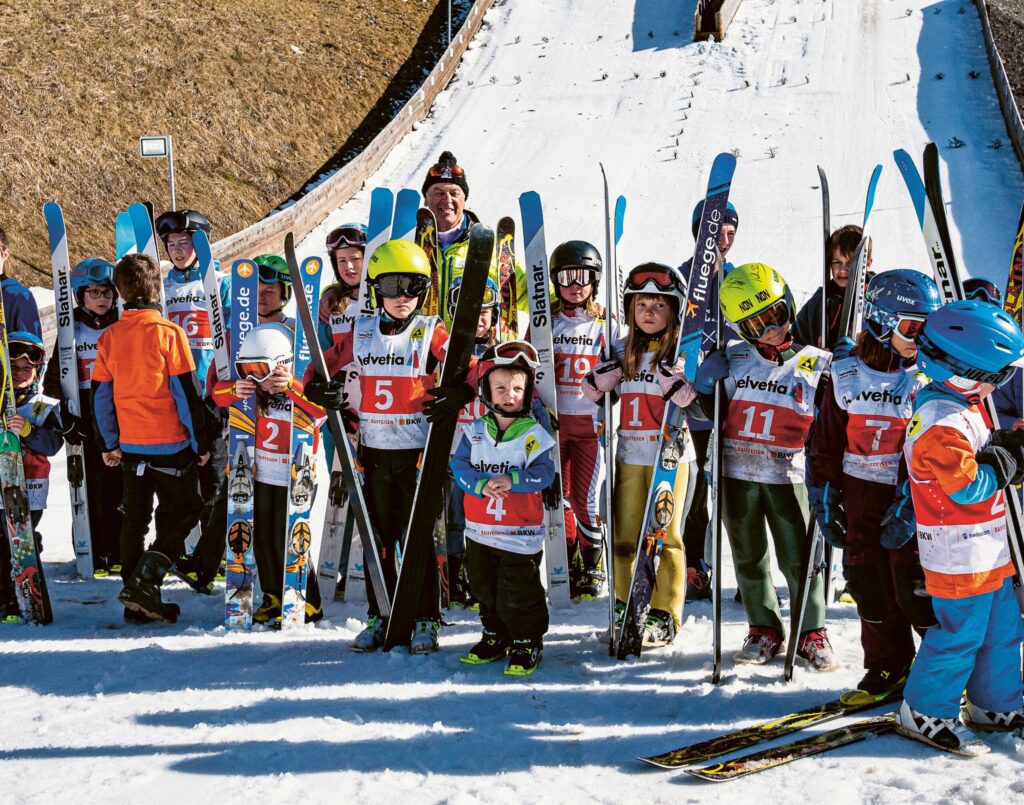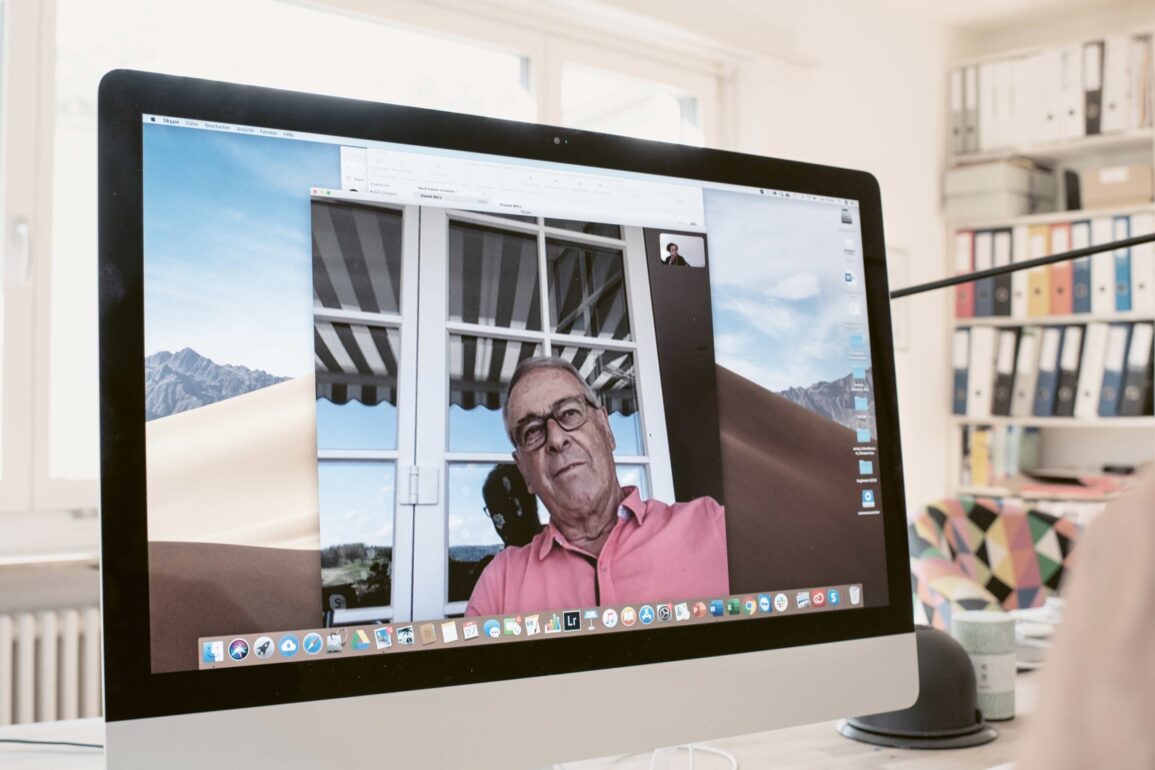The Philanthropist had its first Skype interview with former Federal Councillor Adolf Ogi at the end of April. It was a heartfelt, personal discussion of the impact of coronavirus on the older population, on sport and, in particular, on his foundation Freude herrscht.
You were minister for sport and are a sportsman yourself. Are you able to keep active in these unusual times?
I try to spend an hour to an hour and a half in the woods every day. That means following the advice of the Federal Council, of course. I’ve rarely come across anyone else, and I need to stay active. That’s always been the case for me.
It’s the end of April. What do you miss about life before coronavirus?
We’ve managed pretty well so far. But it’s reaching the point now where I’d really like to see people again – to meet someone for coffee or eat out at a restaurant. I’d love to stop somewhere for a bite to eat while I’m out walking, meet some friends and, above all, be able to give my daughter a hug.
You’ve been involved in sport almost your whole life. You occupied key roles in the world of Swiss and international sport. What impact will the current situation have?
I’m really concerned about the current situation. It’s a difficult time for sport. It’s hard to see the full extent of it right now. Unfortunately, sport hasn’t been mentioned in a very long time in the government’s daily press conferences during the coronavirus crisis. I’m slightly worried that sport will lose out majorly in the current situation. There is a lot at risk – not just for professional athletes, but for local clubs and associations, too. They will probably not all survive. I think the value of sport needs to receive more recognition from the government.
What will the damage be for amateur sports?
It’s not just going to affect amateur sports. It starts with professional sporting events. The Olympics have been postponed, the European Football Championship won’t be taking place, major tennis tournaments like Wimbledon have been called off, and more international competitions are being cancelled every day. It’s causing a snowball effect. National championships and regional events are being cancelled as a result. As long as no more than five people are allowed to meet, this is going to continue. If clubs can’t hold their regular events, if they can’t set up their hot dog stands, if they miss out on the least bit of income, their finances will collapse. The clubs will then also lose the volunteers who work for them. That’s the problem.
What will be the result?
If the ice hockey National League, the Champions League or the Football League 19/20 are suspended and the 20/21 season doesn’t open, that will be bad. It’s worth remembering that for many people, football is a form of entertainment that’s good for the soul. Sport inspires people. And that’s an incredibly valuable thing in our lives. All of us are under some kind of pressure, and sport gives us an outlet.
What does sport mean for our society more generally?
If we want to live in a better and more peaceful world in future, we need politicians with people skills, a thriving economy, science, and tolerant religious and spiritual leaders. We need the current generation of young people, people who want to take responsibility and become leaders in the future. Every child between the age of 5 and 12 should have the opportunity to learn the life lessons that sport teaches you. Sport teaches you how to win without getting too full of yourself and lose without being thrown into the depths of despair. Sport teaches you to work as part of a team and to accept rules and decisions made by the referee. My experience as director of Swiss Ski, as a federal councillor and, in particular, my role as UN Special Adviser on Sport for Development and Peace has convinced me of this.
It looks as though this virus might be with us for a while. What is your advice for the older generation?
There is no one piece of general advice for everybody. My generation is suffering, we have to be honest about that.
Not everyone is finding the situation easy to cope with, but they are generally sticking very closely to the advice. We definitely need to applaud them for that. We have to some extent ‘locked up’ the older generation, and now we need to find a way of letting them back out again. My generation has acted in solidarity and acknowledged that they can’t simply ignore the Federal Council’s advice. They’ve been maintaining social distancing and washing their hands. Now it’s time for the older generation to come out of lockdown and be able to meet up and play bridge. Switzerland is a country with four languages and 26 cantons. We have been living freely and peacefully together since 1848. Older people know the value of that. Living together in this way requires people to connect and debate with each other. If people can’t see each other anymore, it could lead to social tension. It is important and right that people be able to meet again under the specified safety precautions. Connection gives us strength.
Might the coronavirus crisis also be an opportunity to improve dialogue between the generations and increase solidarity? Younger people are helping older people.
When you’re faced with a crisis, it’s character that counts. You can emerge from a crisis stronger than before, but also a little humbler. Meaning that we take care of each other better and offer each other more help and support. There are lessons we should learn from this crisis. It might cause us to act on things we should have acted on a long time ago. We need to acknowledge both the positive and the negative consequences and take appropriate action.
Let’s talk about the Freude herrscht foundation. You formed the Freude herrscht foundation in 2010 in memory of your son Mathias A. Ogi, who passed away. The foundation aims to get children and young people interested in sport and exercise. You support projects and organisations that promote sport for children and teenagers and health programmes for young people. What does this crisis mean for the foundation?
We are definitely going to be continuing our work. We are doing everything we can to make sure the foundation is in a financial position to survive the coronavirus crisis and continue to give thousands of children in Switzerland the gift of fun and games. We want to foster solidarity and take children out into nature and the countryside. We will continue to make a difference – maybe even a bigger one than before. Our board of trustees is convinced of that. Particularly in the aftermath of the crisis, we want to give support to those who need it. We want to teach young people important lessons about how to live alongside each other in the future, and offer support in areas where children tend to be forgotten about. The board of trustees will be launching new concepts and projects.
You can feel the enthusiasm and desire to keep going? You support around 80 events every year. What has been the impact of the coronavirus crisis on your events?
Unfortunately, we have had to cancel the ski day with Matthias Glarner, the king of Swiss wrestling. He’s been an important ambassador of the Freude herrscht foundation. We’ve had an arrangement with him for four years. Every year, he invites two Swiss school classes for a day of skiing. We organise transport to the Meiringen-Hasliberg cable car, which takes the children up to the mountains free of charge. Matthias Glarner pays for their lunch – traditional Swiss macaroni.
The Bern Grand Prix, one of the largest running events in Switzerland, was cancelled. Freude herrscht has been inviting children from the Lötschental valley to this event since the foundation began – children who wouldn’t otherwise be considered for this kind of event. They take part in the run, and afterwards we have lunch together in Café Federal and watch the best runners as they cross the Bundesplatz square. Before taking them back to Lötschental valley, we also visit the Parliament Building. Sport, connection, history and politics – all in one day. And, of course, there are lots of other smaller events we have not and will not be able to hold. But once this crisis is over, we want to start putting smiles on lots of children’s faces again. We’re doing our best to make sure that happens.
Do you see the work you do as a foundation as building a bridge between the generations?
Our organisation focuses on children. Of course, you often see grandparents accompanying their grandchildren. We feel a lot of responsibility towards parents in particular, which is why we make sure we involve them. This is very important to us. The children need to be taken properly into our care and returned to their parents afterwards. We want people to know that we take this responsibility very seriously. So these moments are often a time when the generations meet.
How is your board of trustees made up? The difficulty of finding board members is always an issue.
That’s not a problem for our foundation. Our board members are mainly friends and contemporaries who studied with my son Mathias – people from his athletics circle, people we know as a family. There are currently nine of us, and we don’t really want to be any larger. We also have lots of ambassadors, like Bernhard Russi, Matthias Glarner and Tanja Frieden. And we have a fantastic administrative team and great management. I’d like to take this opportunity to say that without Matthias Kuratli, who, because of a painful personal loss of his own, brings the right level of sensitivity, and Sandra Palli, we would not be able to do what we do. Together with us, they have the right instincts for taking the foundation in the right direction.
You need the right people with the right dedication.
In our case, all our board members are people who knew our son Mathias while he was alive, and that forms a strong foundation of trust. I think it’s safe to say that everyone who lived alongside Mathias, including those who were with him in the military, always tell me that he was very upstanding and unpretentious – despite being the son of a Federal Councillor, which can’t always have been easy for him.

The Freude herrscht Foundation
Freude herrscht was founded in 2010 in memory of Mathias A. Ogi. The Bernese lawyer and sportsman Mathias A. Ogi died at the age of 35 of a rare form of cancer.
The foundation aims to inspire children and young people to engage in sport and exercise. As a charitable foundation, it supports around 80 projects and organizations in children’s and youth sports as well as programs to promote the health of children and young people every year.
On 18 September 2018, the Gottlieb Duttweiler Institute in Rüschlikon was delighted to receive the Adele Duttweiler Prize worth CHF 100,000. The award is presented every two years by Migros to individuals and organisations that have made a special contribution in the social field.


